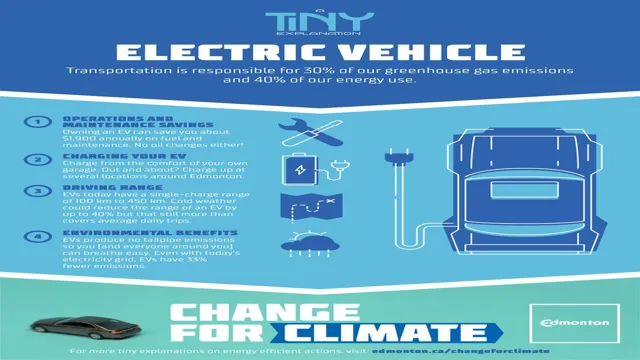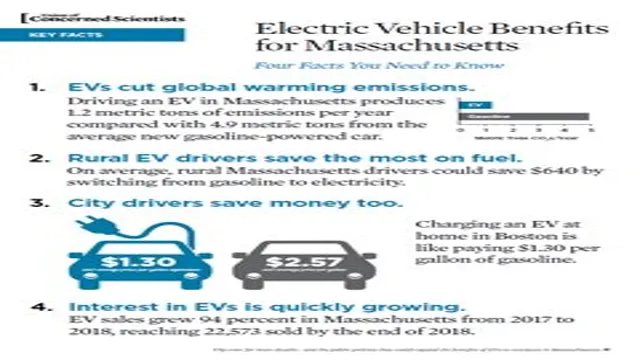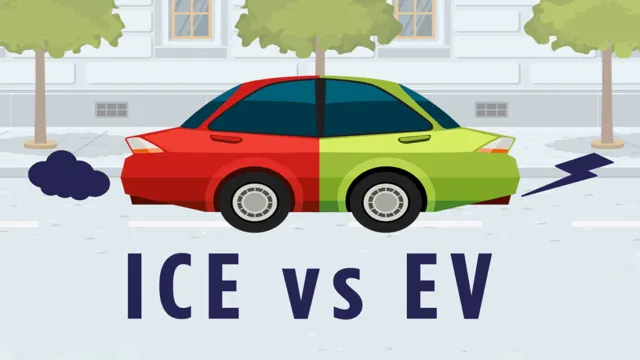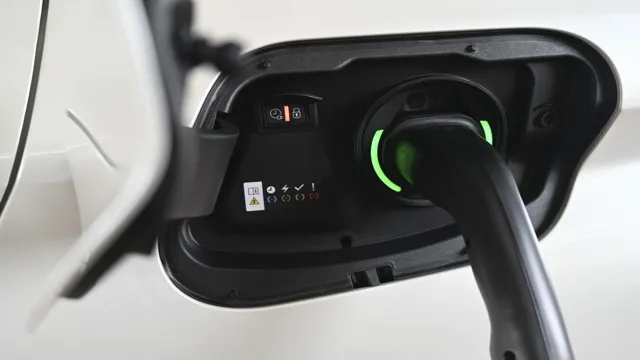Spark the Change: How Electric Cars are Revolutionizing the Environment
As concerns about climate change and air pollution continue to rise, the demand for environmentally friendly cars has also grown. Electric cars have become a popular choice for drivers who prioritize sustainability and reducing their carbon footprint. One of the primary benefits of electric cars is that they produce little to no emissions, contributing to a cleaner environment.
In this blog, we’ll delve into the environmental advantages of electric cars and why they’ve become a dominant force in the world of sustainable transportation. So, let’s unpack how electric cars are contributing to a greener planet, one mile at a time.
Reduced Air Pollution
One of the major benefits of driving an electric car is the reduction of air pollution. Traditional cars emit harmful pollutants into the air, leading to poor air quality and negative effects on human health and the environment. Electric cars, on the other hand, produce zero exhaust emissions, making them a much cleaner option for transportation.
This not only benefits the individual driver but also contributes to the larger goal of reducing air pollution on a global scale. By driving an electric car, individuals can take a step towards a healthier and more sustainable future. Overall, the use of electric cars serves as a crucial solution in reducing the impact of harmful emissions on the environment and society as a whole.
So, if you’re looking to make a meaningful impact on the environment while still enjoying the convenience of personal transportation, an electric car may be the perfect choice for you.
Electrification of Transport
When it comes to reducing air pollution, electrification of transport is a game-changer. Vehicles that run on gasoline and diesel are significant contributors to air pollution, releasing harmful carbon emissions that impact both the environment and human health. However, electric vehicles (EVs) produce little to no emissions, meaning they can effectively lower air pollution levels when they are adopted on a large scale.
Not only do EVs benefit the environment, but they can also save users money on fuel costs over time. Admittedly, switching to a fully electric fleet of vehicles will take time and resources, but it is a necessary step towards a cleaner and healthier world. Moreover, it is important to note that governments and private organizations alike are working to improve charging infrastructure and incentivize the adoption of EVs.
As more people embrace electric transport, we can help create a sustainable and cleaner future while improving our own well-being.

Less Greenhouse Gas Emissions
Reduced air pollution is a significant benefit of reducing greenhouse gas emissions. Greenhouse gases such as carbon dioxide, methane, and nitrous oxide trap heat in the atmosphere, leading to global warming and climate change. These gases come from various sources, mainly from human activities, such as burning fossil fuels, industrial processes, and deforestation.
By reducing greenhouse gas emissions, we can prevent air pollutants from being released into the atmosphere, which can cause respiratory and cardiovascular diseases and other adverse health effects. For instance, by using clean energy sources such as wind, solar, and geothermal, we can reduce emissions from power plants and other industries. Additionally, promoting sustainable transportation such as cycling, walking or public transportation can reduce emissions from cars and trucks.
Ultimately, reducing greenhouse gas emissions not only helps mitigate climate change but also improves air quality and helps protect the environment and human health.
Renewable Energy Sources
Electric cars have become increasingly popular due to their benefits for the environment. These cars operate on electricity instead of gasoline, which means they do not produce harmful emissions that cause air pollution. In addition to reducing your carbon footprint, owning an electric car can also help you save money on gas and maintenance costs.
Although electric cars may have a higher upfront cost, the savings over time can be significant. As renewable energy sources become more accessible and affordable, the use of electric cars will only continue to increase. By investing in sustainable technology like electric cars, we can work towards a cleaner and more sustainable future for our planet.
So, if you’re looking for ways to reduce your environmental impact, consider investing in an electric car.
Solar and Wind Power
Renewable energy sources such as solar and wind power have been gaining popularity in recent years due to their potential to reduce carbon emissions and combat climate change. Solar power uses photovoltaic panels to convert sunlight into electrical energy, while wind turbines generate electricity by harnessing the power of the wind. Both sources of energy are clean, sustainable, and have the potential to provide a significant portion of the world’s energy needs.
Despite their advantages, solar and wind power still face some challenges, such as intermittency and the need for infrastructure investment, but advancements in technology and increased investment are making them more accessible and efficient. As a result, many countries are now turning to renewable energy sources to meet their energy needs, reducing their dependence on fossil fuels and creating a more sustainable future for generations to come.
Cleaner Energy Production
Renewable energy sources have become the buzzword in the energy sector. These energy sources are derived from resources that are easily replenished and do not harm the environment. Unlike fossil fuels, which have finite reserves, renewable energy sources can be relied upon for energy production indefinitely.
Examples of renewable energy sources include solar, wind, hydro, biomass, and geothermal. Of these, solar and wind power are the most popular due to their abundant availability. Harnessing the power of renewable energy sources is not just cost-effective, but it also helps reduce greenhouse gas emissions and lessens the carbon footprint.
Additionally, the use of renewable energy sources helps reduce our dependence on foreign oil and it maximizes energy security. Renewable energy sources are key to cleaner, greener, and more sustainable energy production.
Less Dependence on Fossil Fuels
Renewable energy sources are becoming increasingly popular as the world seeks to decrease its dependence on fossil fuels. These sources, such as solar, wind, and hydro power, harness natural elements and convert them into electricity without emitting harmful pollutants or greenhouse gases. Although they may require an initial investment, renewable energy sources can be much cheaper in the long run because there are no fuel costs, and they require minimal maintenance.
Additionally, renewable energy sources are sustainable because they do not deplete finite resources like oil, coal, or natural gas. This means that future generations will have access to the same resources that we do today. As we continue to prioritize the use of renewable energy, we can reduce our carbon footprint and create a cleaner and healthier world for ourselves and future generations.
Sustainable Materials
Electric cars are a great way to reduce your carbon footprint and protect the environment. One of the main benefits of electric cars is that they produce zero emissions, which means they don’t release harmful pollutants into the air. In contrast, traditional gasoline-powered cars emit carbon monoxide, nitrogen oxides, and other toxic chemicals that contribute to air pollution and climate change.
Electric cars also use sustainable materials, such as lithium-ion batteries, which can be reused and recycled. This reduces the need for new materials to be extracted from the earth and helps to conserve natural resources. In addition to the environmental benefits, electric cars are also cost-effective in the long run.
They require less maintenance and fuel costs, which can save you money over time. Overall, electric cars are a great solution for a more sustainable future.
Recyclable Batteries
Recyclable batteries are becoming increasingly popular as sustainable materials in the electronics industry. One of the biggest issues with traditional batteries is that they contain toxic materials that can harm the environment if not disposed of properly. However, recyclable batteries are designed to be easily broken down, allowing the components to be reused or recycled.
Not only does this reduce waste, but it also conserves natural resources and reduces the carbon footprint of electronics. Some of the most common recyclable batteries are lithium-ion batteries, which are widely used in smartphones, laptops, and electric cars. So, the next time you swap out your old phone battery or purchase a new electric vehicle, choose a recyclable battery to do your part in creating a more sustainable future.
Reduced Mining for Resources
Reduced mining for resources, also known as sustainable materials, is an increasingly important component of responsible manufacturing practices. The traditional methods of mining and extracting resources not only lead to environmental degradation but also pose significant hazards to human health. With increased attention on sustainable development, industries are now focusing on creating products using alternative materials such as recycled plastics, organic textiles, and biodegradable materials.
This not only to reduces the demand for virgin resources but also effectively reduces waste. Additionally, manufacturers are implementing closed-loop systems that recycle materials throughout the production process to ensure that no materials are left unused. By employing sustainable materials, industries are demonstrating their commitment to environmental sustainability while also benefiting their bottom line.
As more consumers prioritize eco-friendly products, companies that have adopted sustainable materials will likely gain a competitive advantage in the market.
Conclusion
It’s not just about saving money on gas or looking trendy behind the wheel of the latest electric vehicle – driving an electric car can have a truly positive impact on the environment. By reducing emissions and decreasing our dependence on fossil fuels, electric cars are helping to pave the way towards a more sustainable future. So not only will you feel good about driving one, but you can also rest easy knowing you’re doing your part to protect our planet.
Plus, let’s be honest, who doesn’t want to drive a car that feels like it’s straight out of a sci-fi movie?”
FAQs
How do electric cars benefit the environment?
Electric cars emit zero pollutants, unlike gas-powered cars, which release harmful emissions that damage the environment and cause global warming. This means that electric cars are a cleaner alternative, as they help reduce air pollution and lower our carbon footprint.
Are electric cars really better for the environment?
Yes, electric cars are better for the environment as they produce less greenhouse gas emissions compared to gas-powered cars. They also contribute towards reducing noise pollution and decrease our dependence on fossil fuels.
What are some positive environmental impacts of using electric cars?
Electric cars have a number of positive environmental impacts. They reduce air pollution, help to combat climate change, decrease greenhouse gas emissions, improve air quality, and promote sustainable transportation.
How do electric cars impact the environment differently than gas-powered cars?
Electric cars use renewable energy sources, such as solar and wind power, to charge their batteries, meaning they emit zero tailpipe emissions. Gas-powered cars, on the other hand, emit pollutants that negatively impact the environment and contribute to climate change. Additionally, electric cars are more energy-efficient, which can help to conserve natural resources and reduce waste.



